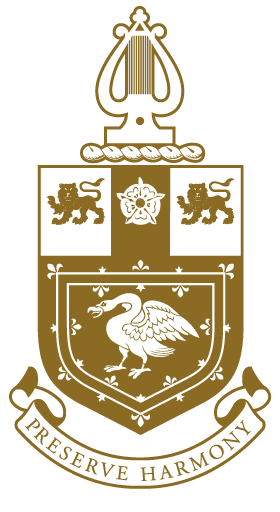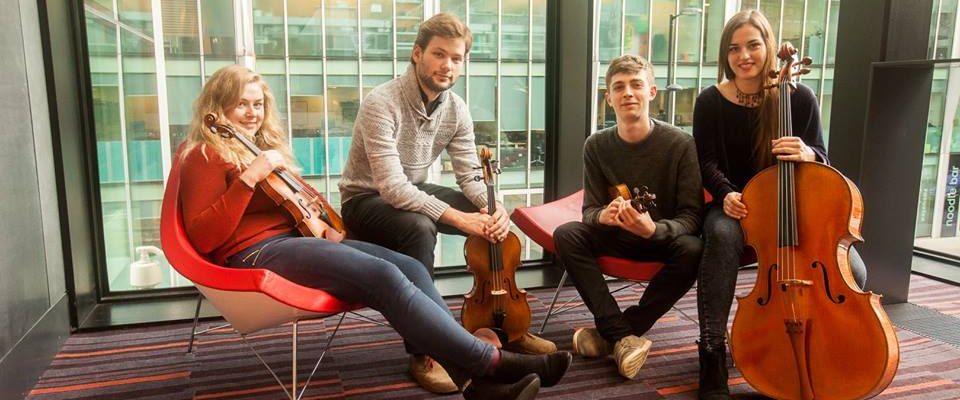Young Artist Interview: Alex Panfilov
When did you know you wanted to be a pianist?
In my case, it was quite late. I come from a non-musical family and was not quite sure what to do until I went to the Moscow Conservatory, where I realised that I probably would not be able to do anything else. Russian teaching methods can be tough sometimes, so it took me a while to understand that I like what I do and enjoy the process of music making.
Where did you learn the discipline of musicianship?
The Russian system of musical education is quite broad and you are supposed to learn many different kinds of music. At the same time, you are raised within a strong Russian performance tradition. However, I was always fascinated by Western music and how it differs from Russian. I was lucky to balance both by having very good teachers, Andrei Diev in Moscow, and Graham Scott in England, whose help I very much value. I also had a chance to go to some masterclasses, and many of those such as Robert Levin’s were very inspiring.
Do you prefer playing solo or in an ensemble?
Both. I believe both experiences are essential in becoming a good musician. I think chamber music is very important in developing musicality and provides invaluable experience. It is also fun to do chamber music as you can share responsibility with your partners, rather than control everything on your own as a soloist. However, solo recitals can be an absolutely thrilling experience if you manage to hold the pressure and do everything more or less as planned.
What pianist or musicians do you most like to listen to?
I love listening to opera. I believe voice is the most perfect instrument and that singing forms the basis of all instrumental music. In fact, I love listening to all vocal music, from Cantatas and Oratorio to Italian love songs and German Lieder. I am also totally obsessed with Russian opera. My favourite performers of all time are Jonas Kaufmann and Natalie Dessay. It can be hard to enjoy listening to piano music when you are a pianist yourself as you start paying attention to professional performance aspects. I would name Pletnev, Ashkenazy, and Pollini as the living artists that I most listen to, and, of course, Martha Argerich. However, I think it is very important for a pianist to not only listen to piano music. Probably, if I had a choice of listening to one piece only through my entire life, it would be Mozart’s Mass in C minor.
What have been the highlights of the year so far?
It has been a good and productive year for me. I got First Prize and Audience Prize in the Hastings International Piano Competition, had a debut with the Royal Philharmonic Orchestra and Manchester Camerata and played in recitals across the UK including Wigmore Hall. I have also toured Germany and been selected to compete in the Leeds International Piano Competition.
Do you get nervous before performing? How do you deal with it?
Yes, I do, especially in competitions. I try not to struggle with it then as I think it is a natural process and your playing can sometimes benefit from it. However, if you get too much adrenaline, this can affect your senses and self-belief. The most obvious thing I notice is the more you play, the less nervous you get. Therefore, I think we have to train ourselves to deal with nervousness and control it. It is important, of course, to learn everything properly and to be well prepared. Physically, a healthy lifestyle and exercise can help you manage stress better, but I’m against taking special pills or other medication to deal with nervousness.
What awards have you won in the last few years?
Apart from the Hastings Competition mentioned above, I was lucky to get first prizes in the James Mottram, Brant, Accademia Romana, and Taranto competitions, as well as third prize from Viotti. I have received many awards and scholarships supporting me in the UK, for which I am very grateful. I also won prizes and gained a scholarship from the Musicians’ Company, and became one of their Yeomen.
What are the best and the worst things about being a pianist?
The best thing about the piano is that it is a complete instrument in itself and can produce so many different sounds. There is a joke that the piano is a percussion, string and keyboard instrument, but it really makes sense, as you can sing, imitate the orchestra, or produce percussion sounds on the piano. What I like is a constant search for new sound quality that you can demonstrate on the piano. As a professional pianist, the positive sides are travelling, meeting new and interesting people and sharing your energy and emotions with the audience in the performances. However, one very big problem for pianists is loneliness – unfortunately as a solo player during tours pianists are alone on stage, in hotels, on transport… Here I find doing chamber music important as it can help you share the stage with someone and have the joy of communication too.
What are you most looking forward to this year?
I have quite an intense start to the autumn with solo recitals planned at places such as the Rye Arts Festival and University of Leeds Concert Series. I’m particularly looking forward to performing a chamber programme with the violinist Philip Brett in Bridgewater Hall, Manchester. Other highlights for autumn include a Mozart 20th piano concerto with a London chamber orchestra and duo concerts with the cellist Christoph Croise in Switzerland and Germany.
Where can people find out more about you?
I’ll soon be launching a website at alexanderpanfilov.com with information and forthcoming events.





